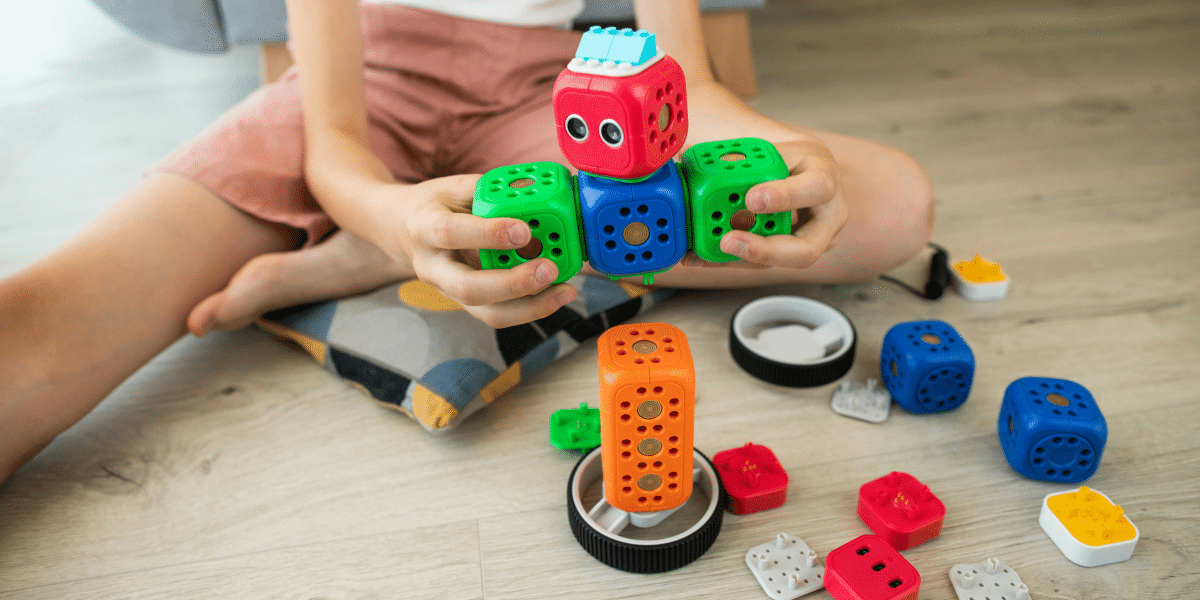By: Jacob Maslow
In the early years of a child’s life, play is not just a way to pass the time but an essential component of development. Toddlers and babies learn about the world around them through play, making it crucial for parents to choose toys that support this process. This article will delve into the importance of toddler toys and baby toys in educational development, the benefits of outdoor and interactive wooden and plastic toys, and how parents can interact with their children to maximize learning and boost imagination.
The Importance of Educational Toys
Educational toys play a pivotal role in the cognitive, physical, social, and emotional development of babies and toddlers. During the early stages of life, children’s brains are highly receptive to new information, and the right toys can provide stimulating experiences that promote growth and learning.
Cognitive Development
Cognitive skills, including problem-solving, memory, and language development, can be enhanced through educational toys. For example, puzzles and shape sorters help children understand spatial relationships and improve their problem-solving abilities. Additionally, toys that incorporate letters and numbers can lay the foundation for early literacy and numeracy skills.
Physical Development
Toys that encourage movement, such as ride-ons, balls, and stacking blocks, are excellent for developing fine and gross motor skills. These toys help children learn to coordinate their movements, improve balance, and build strength.
Social and Emotional Development
Playing with educational toys can also foster social and emotional skills. Dolls, action figures, and pretend play sets allow children to role-play and understand different perspectives, promoting empathy and social interaction. Moreover, sharing toys and playing cooperatively with others teaches toddlers the values of sharing and teamwork.
The Benefits of Outdoor and Interactive Wooden and Plastic Toys
Outdoor and interactive toys provide unique benefits that are crucial for a child’s development. Wooden and plastic toys, in particular, offer durability and versatility that can be advantageous for both indoor and outdoor play.
Outdoor Toys
Outdoor play is essential for physical health and overall well-being. Toys like tricycles, slides, and sandpits encourage children to be active, helping to develop their motor skills and coordination. Being outside also exposes children to nature, which can be incredibly stimulating and beneficial for their sensory development.
Interactive Wooden Toys
Wooden toys are timeless and durable, often lasting through generations. They tend to be simple in design, encouraging children to use their imagination and creativity. Building blocks, wooden puzzles, and train sets are excellent for developing fine motor skills and hand-eye coordination. Additionally, the tactile experience of wooden toys can be soothing and grounding for young children.
Interactive Plastic Toys
Plastic toys, on the other hand, are often more colorful and can incorporate electronic features that make them interactive. Toys that light up, make sounds, or move can capture a child’s attention and provide engaging learning experiences. For instance, interactive books and musical instruments can teach children about cause and effect, while talking dolls and animals can introduce them to new words and sounds.
How to Interact with Your Child to Boost Learning and Imagination
While providing the right toys is essential, the role of parents and caregivers in a child’s play is equally important. Interacting with your child during playtime can significantly enhance their learning experiences and foster a deeper bond.
Engage in Play
Join your child in their play activities. Whether it’s building a tower with blocks or pushing a toy car around, your involvement shows your child that you value their playtime. This can boost their confidence and encourage them to explore and experiment more.
Ask Open-Ended Questions
During play, ask your child open-ended questions that stimulate thinking and imagination. Questions like “What do you think will happen next?” or “How can we solve this problem?” encourage children to think critically and come up with creative solutions.
Encourage Storytelling
Promote storytelling by creating narratives around the toys. For example, if your child is playing with dolls or action figures, you can suggest a story where the characters go on an adventure. This not only enhances language skills but also stimulates imagination.
Provide Positive Reinforcement
Offer praise and positive reinforcement for your child’s efforts and achievements during play. Celebrating their successes, no matter how small, can boost their self-esteem and motivate them to keep learning and exploring.
Create a Stimulating Environment
Ensure that your child’s play environment is safe and stimulating. Rotate toys regularly to keep them interested and provide a variety of textures, colors, and sounds. This can prevent boredom and encourage continuous exploration.
Limit Screen Time
While digital devices can offer educational benefits, it is important to limit screen time and encourage hands-on, interactive play. Physical toys provide a richer sensory experience and promote active engagement.
Final Remarks
Choosing the right toddler toys and baby toys is crucial for fostering a child’s development. Outdoor and interactive wooden and plastic toys offer diverse benefits that can support cognitive, physical, social, and emotional growth. However, the important factor in a child’s playtime is the involvement of parents and caregivers. By engaging with your child, asking open-ended questions, encouraging storytelling, and providing a stimulating environment, you can enhance their learning experiences and boost their imagination.
Incorporating educational toys into your child’s daily routine can turn playtime into an enriching and educational experience. As parents, investing in quality toys and spending meaningful time with your children during play can lay a strong foundation for their future learning and development. So, next time you’re shopping for toys, remember to look for those that not only entertain but also educate and inspire.
Published by: Khy Talara


















